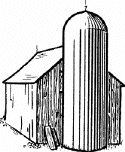What I meant by 'breaking out'
Thursday, March 12, 2009 by Dave Winer.
First, thanks for all the interest in today's earlier piece. It's getting a lot of traffic and comments, all of which have been interesting. We've heard from lots of users and two Twitter board members. ![]()
A commenter named Jonathan asked what I meant by breaking out of Twitter. Here's what I said. ![]()
Thanks for asking -- I was wondering when someone would. ![]()
 I don't know exactly what it means. If a real competitor came along that would create one possible answer, some of us would move there. Probably everyone would instantly get an account, if it were done right, some large number would stay there. If it had features that Twitter didn't have that were high value then it might suck a lot of the life out of Twitter.
I don't know exactly what it means. If a real competitor came along that would create one possible answer, some of us would move there. Probably everyone would instantly get an account, if it were done right, some large number would stay there. If it had features that Twitter didn't have that were high value then it might suck a lot of the life out of Twitter. ![]()
It might mean lots of little Twitters. I'm starting one here on scripting.com, and in the first few hours of use it's already interesting. It wouldn't in any way be a replacement for Twitter. But it offers an alternative. Sort of like the difference between a blog and a big website, when blogs were just booting up in 1999 or so. ![]()
Or it could mean that Twitter voluntarily breaks itself up. Again I'm not sure what that means, but it could mean that Twitter stops having anything at all to do with the content of Twitter. Or it could split into two, CelebrityLand and LandOfThePeople. I don't see any of that as likely, but if I were part of their team, I would encourage them to look at doing to themselves what the competition is likely to do it. That can work out better, because then they get to do it on their own terms instead of the rougher treatment a competitor might offer. ![]()
Right now though, if Facebook offered a "lite" user interface that did just what Twitter does, plus a few nice extras, it would rule. Or if Google did, they would probably suck a lot of the energy out of Twitter. Not sure who else could do it. ![]()
BTW, to people who think Twitter already has too big a head start, I'm not so sure. ![]()
Twitter didn't exist to promote Twitter. But it will exist for Twitter 2.0. So whoever does it will have a superior word of mouth network already built, by Twitter. ![]()
I saw this effect first hand by being here for the rise of blogging and then the rise of podcasting. The latter grew much more quickly because we had blogs to promote podcasting with. The slow part was the building of the network, once it exists, new ones that build on it boot up much more quickly. ![]()
| Recent stories: |
"The protoblogger." - NY Times.
"The father of modern-day content distribution." - PC World.
One of BusinessWeek's 25 Most Influential People on the Web. "Helped popularize blogging, podcasting and RSS." - Time.
"The father of blogging and RSS." - BBC.
"RSS was born in 1997 out of the confluence of Dave Winer's 'Really Simple Syndication' technology, used to push out blog updates, and Netscape's 'Rich Site Summary', which allowed users to create custom Netscape home pages with regularly updated data flows." - Tim O'Reilly.
 Dave Winer, 53, pioneered the development of weblogs, syndication (RSS), podcasting, outlining, and web content management software; former contributing editor at Wired Magazine, research fellow at Harvard Law School, entrepreneur, and investor in web media companies. A native New Yorker, he received a Master's in Computer Science from the University of Wisconsin, a Bachelor's in Mathematics from Tulane University and currently lives in Berkeley, California.
Dave Winer, 53, pioneered the development of weblogs, syndication (RSS), podcasting, outlining, and web content management software; former contributing editor at Wired Magazine, research fellow at Harvard Law School, entrepreneur, and investor in web media companies. A native New Yorker, he received a Master's in Computer Science from the University of Wisconsin, a Bachelor's in Mathematics from Tulane University and currently lives in Berkeley, California.
Dave Winer ![]()
My most recent trivia on Twitter.